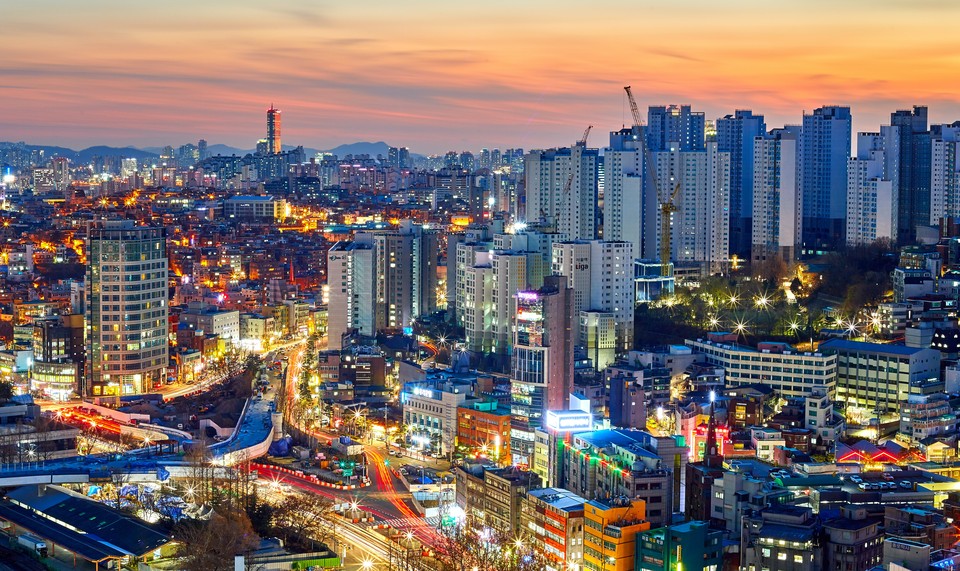
By Jenny Lee WIRED Korea
Last week, South Koreans voted overwhelmingly to give a parliamentary majority to the ruling Democratic Party of Korea and its allied parties in a clear endorsement of President Moon Jae-in and his left-leaning administration.
With the election victory setting the stage for a period of greater political stability, there is no doubt President Moon is better-positioned to fulfill his campaign pledges, including his economic policy of “income-led growth.”
In the first half of his term as president, his goal has been to reshape the economy away from the development model heavily reliant on large conglomerates and exports to a new paradigm that can generate more jobs and equitable growth.
To that end, minimum wage hikes and expansions of social expenditures as well as strong government support for new businesses, startups and small- and medium-sized enterprises have been sought. But their effectiveness came into question as some of those measures did not translate into faster economic growth as he had hoped. Instead, they triggered layoffs and discouraged employment.
And now, he may need to shelve some of his policy goals even as he enters the second half of his presidency with a strong mandate and high popularity. With the COVID-19 pandemic putting immense strain on the world economy, analysts say he needs to give priority to cushioning South Korea from the pandemic’s impacts.
In its April 14 outlook, the International Monetary Fund (IMF) said a recession far worse than the 2008 global financial crisis is in the offing; it expected that global gross domestic product (GDP) will contract sharply, by 3 percent, in 2020, revising its previous forecast in January of 3.3 percent growth.
This wave of economic decline is on track to impact South Korea, where the fallout from the pandemic is already gargantuan. The Bank of Korea’s figures released on Thursday showed that GDP fell by 1.4 percent in the first three months of this year from the prior quarter.
Disruptions to supply chains of technology companies and industrial manufacturers such as Samsung Electronics and Hyundai Motors Co., along with weak global consumer demand for finished goods, is also plunging the export-dependent economy into a deep slump.
“A large part of South Korea’s economic growth is directly impacted both by supply chain shocks from China when the virus first started to spread and now demand shocks across the world in Europe and the United States,” said Troy Stangarone, the senior director of congressional affairs and trade at the Korea Economic Institute.
According to the Korea Customs Service data, South Korean exports for the first 20 days of April plummeted about 27 percent from a year earlier, reversing 9.3 percent growth in the previous month. Imports also dropped nearly 19 percent.
“We're now starting to see the impact of exports now, the beginning of Q2,” Stangarone said. “While there were challenges in Q1 with parts supplies specifically for the auto industry in South Korea, the impact in terms of demand now hitting in Q2 is likely to be larger because it entails (a decline in exports to) two of Korea's largest export markets.”
And that means unless the rest of the world recovers, there will be a limit to the extent that the economy goes back to the normal level of activity, said Tomoo Kikuchi, associate professor at Korea University’s Department of Economics.
Massive layoffs were also triggered by the pandemic, with the country losing 195,000 jobs in March compared to the same month last year, Statistics Korea’s recent data revealed. The number of people on temporary layoffs also hit a record high this month, surpassing 1.6 million. Many of them were young part-timers and freelancers in education, dining, retail and wholesale industries.
As Moon believes the key to a quick rebound must start with protecting jobs, a third supplementary budget for this year is being drawn up to fund the government’s new 10.1 trillion-won ($8.19 billion) emergency job aid.
The money will be spent to help small businesses retain jobs, support emergency job security plans and create new jobs, Finance Minister Hong Nam-ki said Wednesday in a news briefing.
“The government isn't going to be able to pay the full costs” to repair the economic damages from the outbreak, Stangarone said. “So you'll need to see companies be willing to keep people on board that ordinarily they might lay off, but their employees will also have to make certain sacrifices in terms of potentially temporarily lower salaries.”
저작권자 © WIRED Korea 무단전재 및 재배포 금지
이 기사를 공유합니다


 뉴스레터 신청
뉴스레터 신청